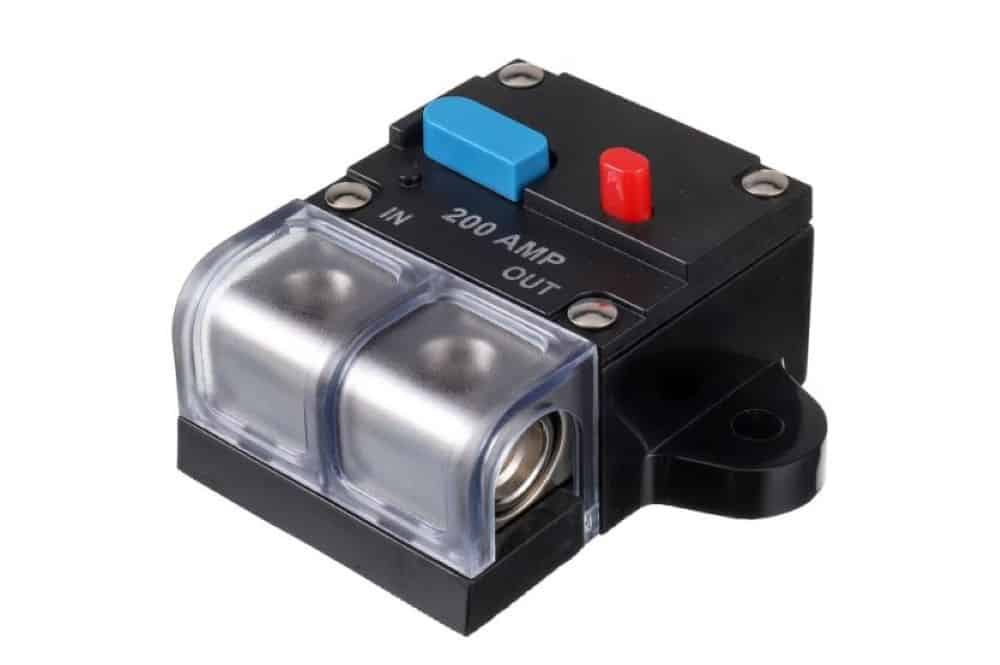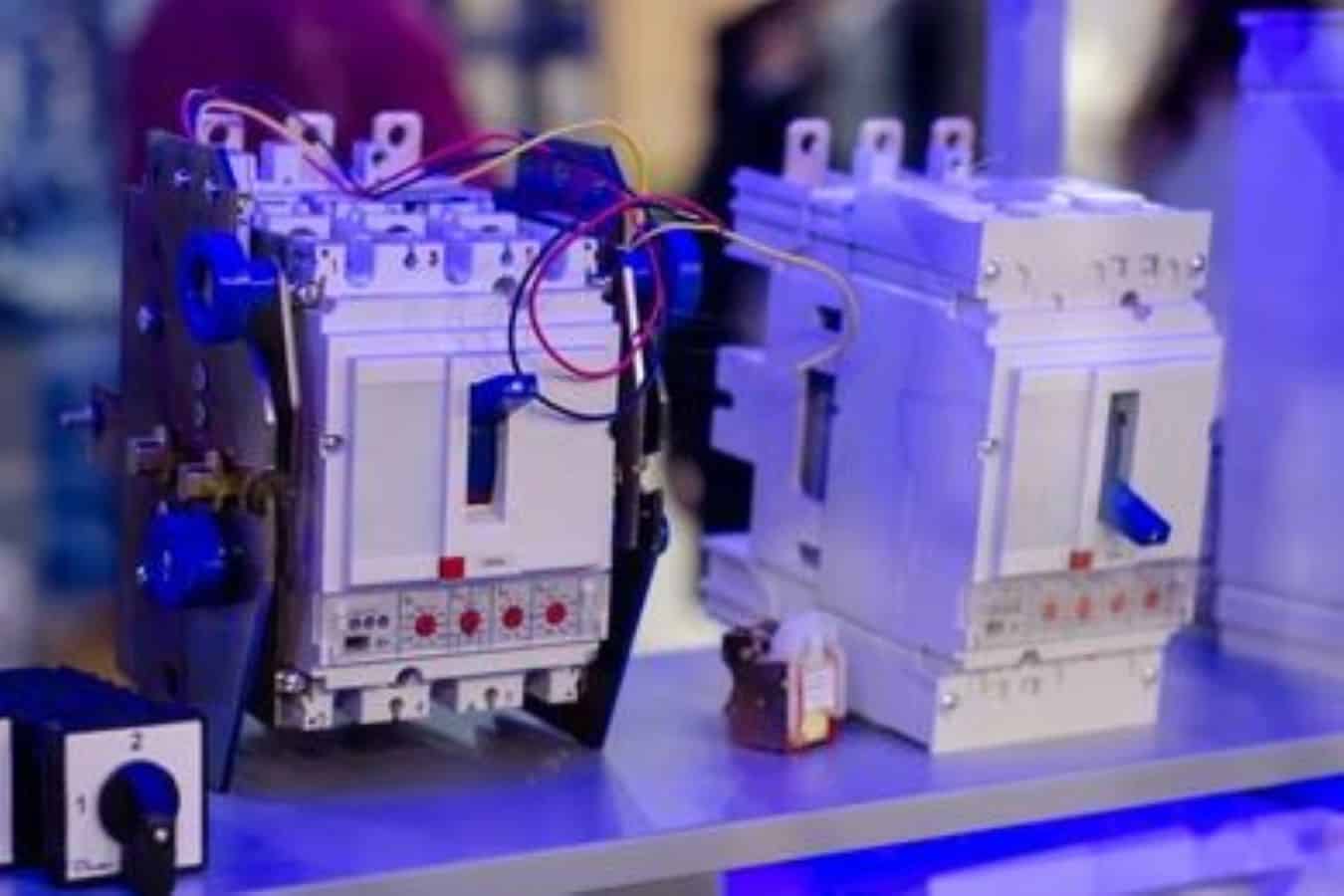Do you need information on how circuit breakers work? Then, this article on the best circuit breaker will provide you with all the information you need.
This buying guide on Powerversity aims at drawing your attention to circuitry and its benefits in a home.
You will learn the difference between a circuit breaker and a fuse, as well as where and when to use them.
Circuit breakers ensure a safe, free-from-harm, and complete current flow in our homes.
So, in this buying guide, I will enlighten you on precautions when dealing with electrical devices.
Also, you will learn how to protect and preserve your property when using a circuit breaker.
In addition, you will know the factors, features, pros, cons, and recommendations of Better Fuse or MCB in the market.
Then, I will compare a fuse and MCB to determine which is the best one to use in your home.
Therefore, stay put and read this article to the end to get all the relevant information you need.
Overview – Best Circuit Breaker
Anyone installing electric circuitry must keep the protection of electrical devices and users in mind.
On this basis, I present to you this article on the best circuit breaker.
Many people do not know how their electrical devices work or the dangers they pose.
Also, some don’t know how to protect their homes during dangerous moments.
So, to start with, what is a circuit breaker, and which is better, a fuse or an MCB?
A circuit breaker is a device in an electrical circuit that ensures the current in the circuit flows to completion.
It operates manually or automatically to protect and control the electrical power station.
They prevent the dangers that occur if current overloads a circuit.
Pros And Cons – Best Circuit Breaker
Pros
There are many reasons why people choose a miniature circuit breaker over a fuse.
As mentioned in the overview, MCBs are better than fuses, especially modern circuit breakers.
They achieve safety and reliability, lower costs, and support energy management initiatives in a circuit.
So, I will be looking at a few reasons with a brief explanation.
Advanced protection
A fuse has a problem whenever overloading occurs in a circuit. As a result, the fuse wire will melt and need replacement.
But miniature circuit breakers overcome this problem—an added advantage over the fuse.
In addition, the MCBs switch off automatically when an overload or short circuit occurs.
Also, it resolves this problem. Once this happens, the switch turns back on, and the current will continue to flow as usual.
Furthermore, this MCB is more sensitive to current than a fuse because it is easy to detect abnormalities so quickly.
This sensitivity makes them discover issues in current flow and automatically switch off the electrical circuit.
Consistent performance
Lack of advanced protection is one of the drawbacks of fuses in a circuit.
In addition, their performance can degrade as they age, which makes them vulnerable under normal conditions.
In addition, there is no means of dictating faults on a fuse and no way to test them.
So, you can not know the exact current value that it will consider an overload or that will cause it to open.
Fortunately, you can test circuit breakers like MCBs during manufacture.
Also, you can retest them before using them in a circuit.
However, you can further test them during their operating life to maintain performance and retest them when the circuit is faulty to discover the faulty parts.
Therefore, in handling, the MCB is electrically safer than handling a fuse.
Enhanced safety and uptime
Faulty circuits trip off in the MCB circuit so that one can identify the faulty zone on the circuit.
Also, using a fuse is dangerous to the technical personnel, as exposed conductors are dangerous in a circuit.
When a fault is dictated, it requires the replacement of the fuse, and it becomes dangerous, especially for unskilled people.
But the reverse is the case with MCBs, their connections are behind the device, and operations are done remotely.
Furthermore, an unsafe circuit or fuse can cause fire outbreaks in industrial environments, but these kinds of mistakes and problems can be avoided with circuit breakers.
Therefore, they do not need replacements after a trip.
In addition, more time is taken when replacing a fuse than when reclosing a breaker.
Hence, circuit breakers minimize downtime and production losses.
Also, it saves costs.
Using an MCB as a circuit breaker other than a fuse will reduce the cost of maintaining a circuit damaged by a faulty fuse.
Although the cost of a single circuit is less than that of a circuit breaker, when we consider the complete cost of an installation, there are other costs to consider.
First, three fuses are needed to complete a three-phase circuit, and each fuse requires a fuse base.
Secondly, fuses also require an additional upstream switch because they lack built-in switching capability.
Thirdly, fuses require a larger enclosure due to their heat dissipation.
Finally, if, by any chance, one of the three fuses opens, all three fuses will need replacement, and it is expensive to replace a stock of three fuses.
Therefore, using fuses in a circuit is costly if you calculate the complete cost, requiring more than a circuit breaker.
In addition, it has greater functionality.
Unlike fuses, they have additional functions as they dictate ground fault protection.
Another function is that they allow for system coordination between breakers.
Also, advanced circuit breakers come with more flexible designs that enable field upgrades.
Additional features are remote control and status indication, alarm and auxiliary contacts, power, and energy measurements, and network communication.
Cons
The circuit breaker needs replacement occasionally.
On certain occasions, you will need to replace a circuit breaker in a circuit.
Though, the cost is not much to replace MCB with the price of replacing a fuse.
Also, a single breaker model is useful for different power ratings, which minimizes inventory.
In addition, circuit breakers are better long-term options as they have fewer parts and need less frequent replacement.
Important Factors To Note When Buying A Circuit Breaker
Application
When entire circuit protection is your concern, think of miniature circuit breakers.
They protect the entire home and individual electronic devices.
Fuses protect individual devices instead of the entirety of your home, office, or industry.
This application is even more important when deciding which switch device to use.
Operation principle
The operation principle of a circuit breaker is electromagnetic or automatic.
It switches off the connection of the entire electrical device and ensures the safety of all.
But the fuse uses a conducting material in its operation.
So, because of the conducting material, the electrical and thermal properties are damaged when the current exceeds the requirement.
The operation principle is necessary to decide which is better in a circuit.
Reusability
The fuse is not reusable at all; it blows out when an incoming current exceeds the current needed by a device.
Once it has blown away, it cannot be reused.
In contrast to fuses, MCBs function mechanically by tripping and disengaging the connection.
As it trips and reconnects, no doubt, it will be reused several times.
Operation mode
Operation mode is another factor to consider when choosing to use a fuse or MCB as a circuit breaker.
As I said earlier, the MCB operates mechanically and manually, while the fuse is just automatic.
The operation mode of a fuse is also mechanical when you re-fix it.
Switching Action
The switching option between a fuse and an MCB is as crucial as ever.
A fuse cannot be used on ON/OFF switches, but a circuit breaker like an MCB does or works with ON/OFF switches.
Protection
Circuit breakers offer the best protection for your electrical devices and home.
This needs consideration for those choosing between a fuse and a circuit breaker.
The MCB, as a circuit breaker, protects homes and devices against power overloads and short-circuits.
While a fuse will only protect devices and homes against power overloads.
Breaking Capacity
In terms of breaking capacity, the fuse tends to break more than the MCB.
Therefore, they have a lower breaking capacity than circuit breakers.
Cost part
The cost of a part in a fuse or MCB should be considered before purchasing it. The cost of fuses is incomparably low compared to that of a circuit breaker.
However, the circuit breaker may be more costly than fuses, but it will not require the replacement of all parts if any damage occurs.
But, fuses in a three-phase circuit need to be replaced to complete the circuit.
Hence, fuses are more costly in the long run than miniature circuit breakers.
My Recommendations And Specifications Table – Best Circuit Breaker
| Product Name | Dimensions | Item Voltage | Current | Mounting Type | Brand |
| 12V-110V DC – Miniature Circuit Breaker | 2.96 x 1.41 x 3.26 inches | 36 Volts, 48 Volts, 24 Volts, and 12 Volts | 10 Amps | Nil | CHTAIXI |
| Suntree 32 Amp Single-Pole DC | 3.2 x 3 x 0.7 inches | 32 Amps | DIN Rail Mount | Renogy | |
| EPLZON 200A Circuit Breaker Resettable | 4.37 x 3.03 x 2.13 inches | 24 Volts, 12 Volts | 200 Amps | Panel Mount | EPLZON |
| Chtaixi AC Miniature Circuit Breaker | 2.95 x 0.7 x 3.15 inches | 240 Volts | 20 Amps | DIN Rail Mount | CHTAIXI |
| Westinghouse Miniature Circuit Breaker | 4.33 x 3.27 x 0.94 inches | 277 Volts | 15 Amps | DIN Rail Mount | Westinghouse |
Products Review – Best Circuit Breaker
512V-110V DC Miniature

The product taking the 5th position on my list of the best circuit breakers is the “12V-110V DC Miniature Circuit Breaker.”
This is a fast-trip miniature circuit break with an electromagnetic trip system that will immediately trip off whenever a short circuit occurs.
It has a Curve-B magnetic trip range of 4–7 times the rated current.
Also, its installation is very easy; just screw the clamp wire or M5 wire lung to fit the size.
In addition, the installation is done using a 35mm DIN rail mount.
However, it is used in battery power systems, solar photovoltaic systems, RVs, electric mopeds, or other DC systems.
Finally, its current rating is 10.00 amps, and it uses 2 poles.
Pros
- Simple installation.
- It functions at 24.0 volts, 12.0 volts, 36.0 volts, and 48.0 volts.
- Also, it is very fast to trip current using the electromagnetic trip system.
- In addition, it is useful in battery power systems and other DC systems.
- Furthermore, it is ideal for overload and short-circuit protection and control isolation.
- Lastly, its Curve-B magnetic trip current is rated in a range of 4–7 times.
Cons
- There is no manual to show if they are polarized or not.
- Also, it does not have a warranty.
4Suntree 32-amp Amp Single-Pole DC

Suntree 32 single-pole DC is 4th on my list of the best circuit breakers.
This Suntree is a miniature circuit breaker with double security. In addition, it is equipped with thermal and magnetic tripping mechanisms for reliability and safety.
Also, it is durable for use and reuse. You only have to reset it once it trips off, and there will be no damage.
Even so, the quick installation makes it standard with the buckle design. In addition, it is compatible with Renogy circuit breakers and PV combiner boxes.
However, they are useful for multiple uses. It protects cables and devices from damage and is best for maintaining and replacing system devices.
Last but not least, it has a built-in indicator window that helps users identify the contact position.
Pros
- Suntree 32-amp MCB has multiple uses.
- It is the quickest to install.
- Double security
- Also, it does not damage easily.
- In addition, it has a built-in indicator window.
- Finally, it is durable for use.
Cons
- Few need testing before installation.
- Also, some of them may have no voltage or continuity.
3EPLZON 200A

3rd on my list of Best Circuit Breakers: Better Fuse or MCB in the Market is the “EPLZON 200A Circuit Breaker Resettable.”
PLZON 200A circuit breaker has a manual reset switch that is suitable for the auxiliary DC electrical system.
It is a large-current thermal trip circuit breaker with an automatic disconnect that protects the circuit.
Also, they have a recovery fuse to disconnect and protect the circuit. This fuse prevents excessive current and protects electrical appliances.
In addition, the materials and wiring aid in circuit safety and precaution.
Finally, they have highly flame-retardant and anti-vibration plastics, shells, and parts.
Pros
- Simple installation.
- Functional in circuit protection.
- It has a highly flame-retardant material.
- Applicable in automobiles, ships, RVs, loudspeakers, horns, winches, etc.
- Also, it accepts 0/2/4/8-spec power cords with adapters.
- Features like a reset switch for the auxiliary DC electrical system.
Cons
- Sometimes, the IN and OUT need to be recorrected.
- No warranty.
2Chtaixi AC Miniature Circuit Breaker

2nd on my list of Best Circuit Breakers: Better Fuse or MCB in the Market is the “Chtaixi AC Miniature Circuit Breaker.”
This is a miniature circuit breaker with dimensions of 2.95 x 0.7 x 3.15 inches.
They have quality silver alloy contacts, flame-retardant material shells, and color indicators.
Also, its installation type is a 35mm DIN rail mount with screw clamp wires.
Furthermore, it is usable in home circuits, RVs, or other 50/60Hz AC systems.
In addition, its magnetic Curve-C current trip ranges from 5-10 times.
Finally, it functions to protect circuits with 110v, 120v, 220v, and 230v AC circuits.
Pros
- Functional for controls and isolation circuit overload and short circuit damage.
- Magnetic trip
- Quality alloy contacts, color indicator, and flame retardant material shell.
- 35mm DIN rail mount installation.
- Applicable to solar systems and RVs.
Cons
- It has a small overall size.
- In most cases, the breaker may not fit firmly.
1Westinghouse Miniature Circuit Breaker

Westinghouse Miniature Circuit Breaker is the best pick on my list of Best Circuit Breakers: Better Fuse or MCB in the Market.
This is a good DIN rail mountable circuit breaker. Though it seems like a mini-breaker, it works better on a bigger box.
Also, it is certified by UL 489 as it meets the National Electrical Code standards.
It serves as primary thermal overload and short circuit protection.
Even so, it has a more standard installation, unlike other mini circuit breakers.
More so, it has input-output module protection for programmable logic controllers, relays, and instrumentation, among other applications.
Furthermore, its specifications are a 15-amp, 1-pole C trip curve MCB for 10 kA/C.
Lastly, it has a current limiting that interrupts within the first half AC cycle to 2 AC cycles for other conventional breakers.
Pros
- Current limiting.
- Standard installation.
- UL489 certification by National Electrical Code standards.
- Single pole miniature circuit breaker
Con
- No warranty
- DIN rail and installation kit are sold separately.
Frequently Asked Questions And Answers – Best Circuit Breaker
MCBs are electrical switches that operate automatically to protect electrical appliances and human beings from electrical shocks and faults.
They work by being sensitive to current flow and quickly disconnecting the circuit when an error occurs, be it overload or short-circuit.
A fuse is inserted between two terminals on the positive terminal to supply power to an electrical device. It works with pieces of wire that will melt and disconnect power to the device to avoid damage.
A fuse will only prevent a specific device from being damaged when incoming currents exceed the requirement. The circuit breakers, like the MCB, will disconnect the connection any time the power load exceeds the supply.
Their differences range in cost, application, operation principle, and reusability.
Also, their differences are in the application and working principles.
You cannot use wires and miniature circuit breakers in a circuit containing electric cells.
It is because the circuit does not have a high voltage, and there is no danger in them.
Circuit breakers are more reliable than fuses because they handle higher amounts of electricity and trip much faster. Also, they are much safer than fuses and are the best choice for circuit protection and safety.
My Final Thoughts – Best Circuit Breaker
Accidents are inevitable in our lives, and many times they are sudden electrical failures that one needs to prevent.
This electrical fault or damage needs to be addressed quickly, or else it will cause more damage to other things.
That is why it is good to use a circuit breaker capable of preventing this damage.
If it happens, this device will ensure that your home electrical devices are safe from damage by using precautionary measures to save you and your home.
Circuit breakers are reusable over and over again, unlike fuses. In addition, circuit breakers protect our devices against circuit overload and short-circuiting.
They serve multiple purposes, while the fuse only protects the devices and home from overloading.
I hope you find these buying guides helpful.
If you found the review helpful, kindly review this buying guide with the “Leave a Reply” form at the end of this page.
For more buying guides like this, please visit the following pages:







